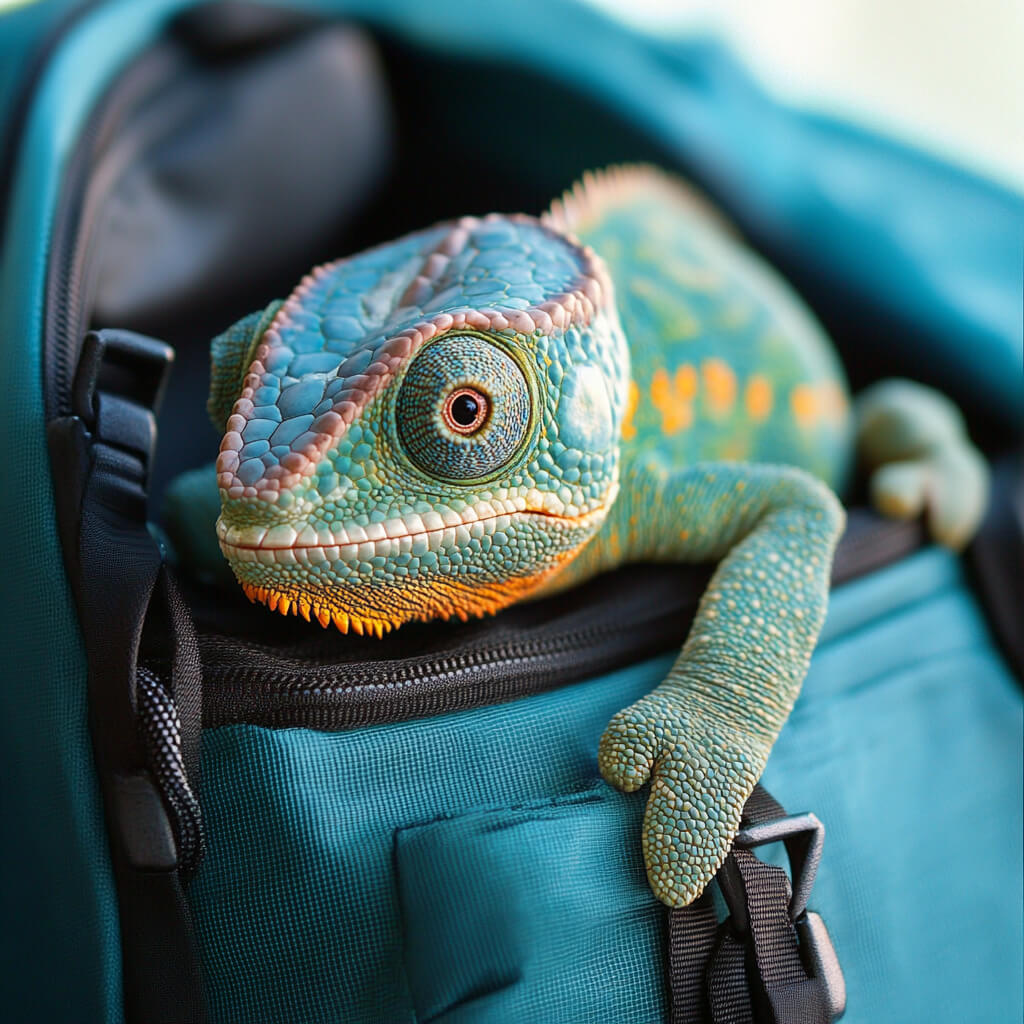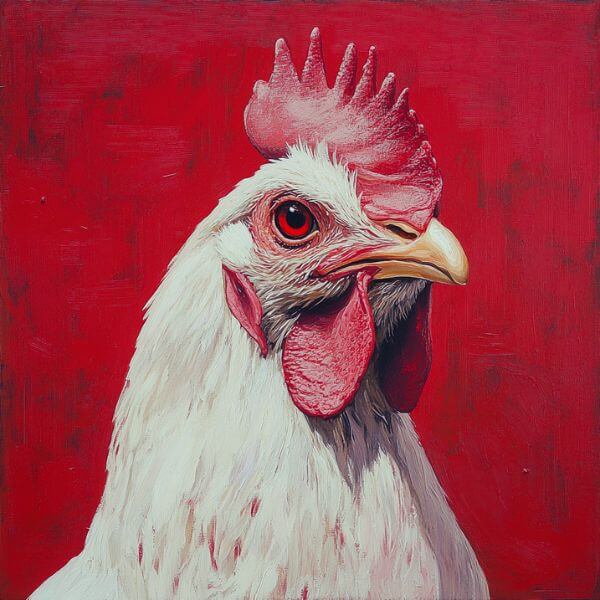No, chameleons should not eat ice cream.
It might be tempting to share your favorite dessert with your pet, but ice cream is a big no-no for chameleons. Here’s why:
- Chameleons are insectivores (they eat bugs, not dairy)
- Their bodies aren’t designed to digest milk products
- Ice cream contains ingredients that can be harmful to chameleons
- The cold temperature of ice cream can be bad for their digestion
Risks of feeding ice cream to chameleons
Feeding ice cream to your chameleon isn’t just a bad idea – it can actually be dangerous! Let’s break down the risks:
Lactose intolerance in reptiles
Chameleons, like most reptiles, are lactose intolerant.
This means their bodies can’t process the sugars in milk.
If they eat dairy products like ice cream, it can lead to:
- Stomach aches
- Diarrhea
- Dehydration
Harmful ingredients in ice cream
Ice cream isn’t just milk and sugar. It often contains other ingredients that can be toxic to chameleons:
| Ingredient | Why it’s harmful |
| Sugar | Can cause obesity and dental problems |
| Chocolate | Toxic to many animals, including reptiles |
| Artificial flavors | May contain chemicals harmful to chameleons |
| Nuts | Can be a choking hazard |
Temperature concerns and chameleon digestion
Chameleons are cold-blooded, which means their body temperature changes with their environment.
Eating something as cold as ice cream can:
- Slow down their digestion
- Make them too cold
- Cause stomach cramps
Understanding chameleon dietary needs
Now that we know ice cream is off the menu, let’s talk about what chameleons should be eating.
Natural diet of chameleons in the wild
In nature, chameleons are bug-eating machines! Their diet typically includes:
- Crickets
- Flies
- Grasshoppers
- Roaches (yum!)
- Worms
Essential nutrients for captive chameleons
When keeping a chameleon as a pet, it’s important to make sure they’re getting all the right nutrients. Here’s what they need:
- Protein (from insects)
- Calcium (for strong bones)
- Vitamins A and D3
- Water (for hydration)
Safe foods for chameleons
While insects should make up most of their diet, there are some safe foods you can offer as occasional treats:
- Leafy greens (like collard greens or kale)
- Small pieces of fruit (like apple or banana)
- Gut-loaded insects (bugs fed nutritious foods before being fed to your chameleon)
Temperature and chameleon health
Temperature isn’t just about comfort for chameleons – it’s crucial for their health!
Importance of proper temperature for chameleons
Chameleons need a warm environment to:
- Digest their food properly
- Move around comfortably
- Stay healthy and active
Effects of cold foods on chameleon thermoregulation
Giving your chameleon cold foods like ice cream can mess with their body temperature. This can lead to:
- Sluggishness
- Poor digestion
- Weakened immune system
Why room temperature foods are best for chameleons
Stick to offering food at room temperature. This helps your chameleon:
- Digest their meals easily
- Maintain a healthy body temperature
- Stay active and happy
Healthy alternatives to ice cream for chameleons
Just because ice cream is off-limits doesn’t mean your chameleon can’t enjoy special treats!
Safe treat options for chameleons
Here are some yummy and safe options:
- Waxworms (in moderation – they’re like chameleon candy!)
- Hornworms
- Phoenix worms
- Silkworms
Chameleon-friendly “desserts”
Want to get creative? Try these chameleon-friendly “desserts”:
- Fruit-dusted crickets
- Flower petals (edible ones, of course!)
- Honey-dipped insects (just a tiny bit of honey)
Remember, these are treats – not everyday meals!
Best practices for feeding pet chameleons
Let’s wrap up with some tips on how to be the best chameleon chef around.
Chameleon feeding guidelines
Follow these feeding guidelines to keep your chameleon healthy:
- Feed adult chameleons once a day
- Offer a variety of insects
- Dust insects with calcium powder 2-3 times a week
- Provide fresh water daily (mist their enclosure or use a dripper)
Common feeding mistakes to avoid
Don’t fall into these traps:
- Overfeeding (chameleons can get chubby too!)
- Feeding only one type of insect
- Forgetting to gut-load insects before feeding
- Leaving uneaten insects in the enclosure
Importance of a varied diet for chameleons
Just like us, chameleons need variety in their diet. This helps ensure they get all the nutrients they need and keeps mealtime exciting!
FAQs about chameleon diet and ice cream
Got questions? We’ve got answers!
Can chameleons eat any dairy products?
Nope, chameleons can’t digest dairy. Stick to insects and occasional fruits/veggies.
What happens if a chameleon eats ice cream?
They might get an upset tummy, diarrhea, or even more serious health issues.
Are there any safe human foods for chameleons?
Some fruits and veggies are okay as occasional treats, but insects should be their main food.
How often should I feed my chameleon treats?
Treats should make up no more than 10% of their diet. Once a week is plenty!
Can chameleons eat frozen insects as a cold treat?
Frozen insects are okay, but always thaw and warm them to room temperature first.
Conclusion
While ice cream might be a no-go for chameleons, there are plenty of other ways to treat your scaly friend.
Remember, a happy chameleon is a well-fed chameleon – with the right food at the right temperature.
Stick to a diet rich in insects, with the occasional fruit or veggie treat.
Keep things at room temp, and your chameleon will be living its best life.
Who needs ice cream when you’ve got a buffet of delicious bugs, right?
Keep those chameleons healthy, happy, and ice-cream free!







Leave a Reply